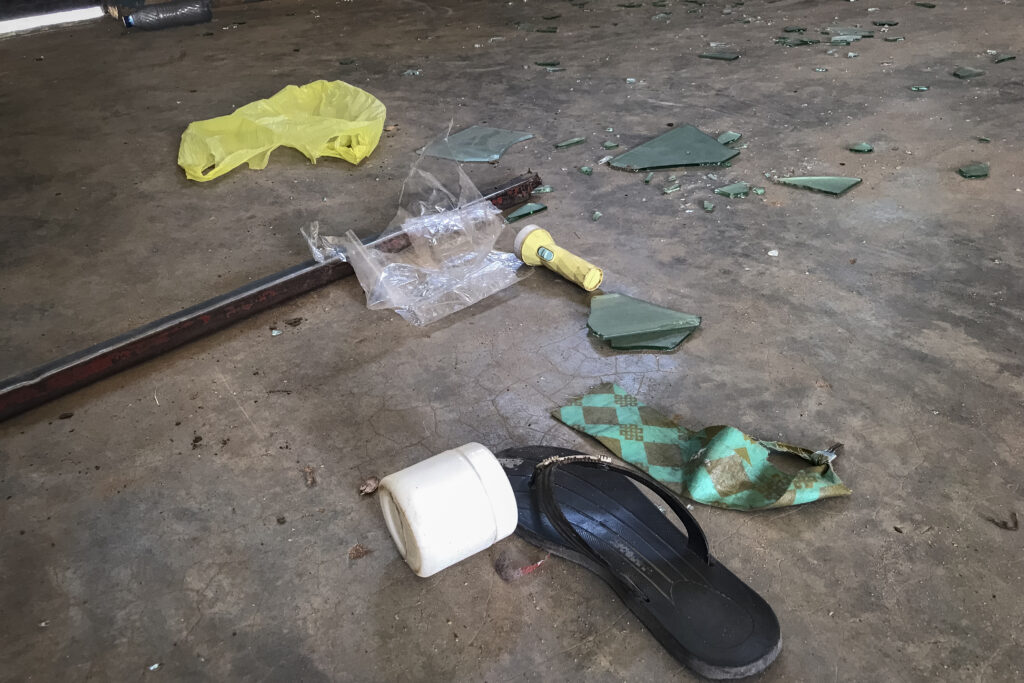At the Iddo bus station in Lagos, Nigeria’s economic capital, passengers like Rasheedat Eniola say they travel with knots in their stomach. The 29-year-old nurse is headed to the state of Kano to attend her sister’s graduation, but the series of kidnappings that have hit the north of the country turn each trip into a test of nerves. “Each moment, I’m getting closer to my travel time, I’m thinking, I’m asking myself, am I doing the right thing? I mean, am I supposed to be here? Everybody I spoke with about the trip there they are telling me that they don’t have money to pay for ransom,” she said. The bus she is about to board takes more than 24 hours to reach Kano, crossing most of the northern states that have been hit by mass kidnappings over the past ten days. Several hundred people have been abducted: more than 300 students and teachers from a Catholic school in Papiri in Niger State, 25 Muslim schoolgirls at a boarding school in Kebbi state, 38 members of a church in Eruku and 10 residents of Ispa in Kwara, as well as 13 girls in Borno State. While the 25 schoolgirls from Kebbi and 50 students from Papiri have been released, dozens of people remain missing.- Permanent vigilance -Nigeria is plagued by persistent insecurity, with frequent kidnappings, particularly in rural areas. But the recent wave of abductions has heightened travellers’ fears. The kidnappers don’t always claim responsibility. In the northwest and central regions of the country, they are usually “bandits,” criminal gangs that roam the countryside, looting villages, killing their inhabitants, or kidnapping them for ransom.Adamu Inusa, the 61-year-old bus driver on Eniola’s trip to Kano, describes a climate of permanent vigilance. “If something happens, for example, if I brake suddenly, they (the passengers) jump, thinking someone is going to kidnap them,” he explains. Despite the passengers’ fear, he continues to work. “We drivers are used to it, and we can’t stop working. We can’t be afraid of them (the bandits),” he said.According to Salomon Zachariah, manager of a transport company, passenger numbers are way down. “The last four to five months, we have been loading about three to four buses a day. But due to this insecurity, the kidnapping issue, some of the businesses have stopped,” he said.Because of the insecurity, some Nigerians have decided not to leave Lagos. That’s the case of Waheed Shafe Omo Oba, a minibus driver in the country’s biggest city. “I cannot go out of Lagos. But, we in Lagos, we are worried about what is happening over there. Are they not Nigerians? They are Nigerians,” he said. – ‘I felt betrayed’ -He says the kidnappings are highly organised. “Kidnapping has become a business. When you kidnap someone and demand money for their release, isn’t that a business?” he said. For many Nigerians, the persistent insecurity reflects the state’s inability to ensure their protection.”I felt betrayed, I feel like they are not taking us as important,” Eniola said.She said she is pained by the persistent kidnappings.”We’ve had the Chibok girls kidnapped over a while, and we knew what we went through as the whole nation to bring them back home. So to see history repeat itself is so, so disappointing,” Eniola said.The first mass abduction to shock Nigeria was in 2014 when the jihadist group Boko Haram kidnapped 276 teenage girls in Chibok, in the northeast. Nearly 90 of them are still missing.
